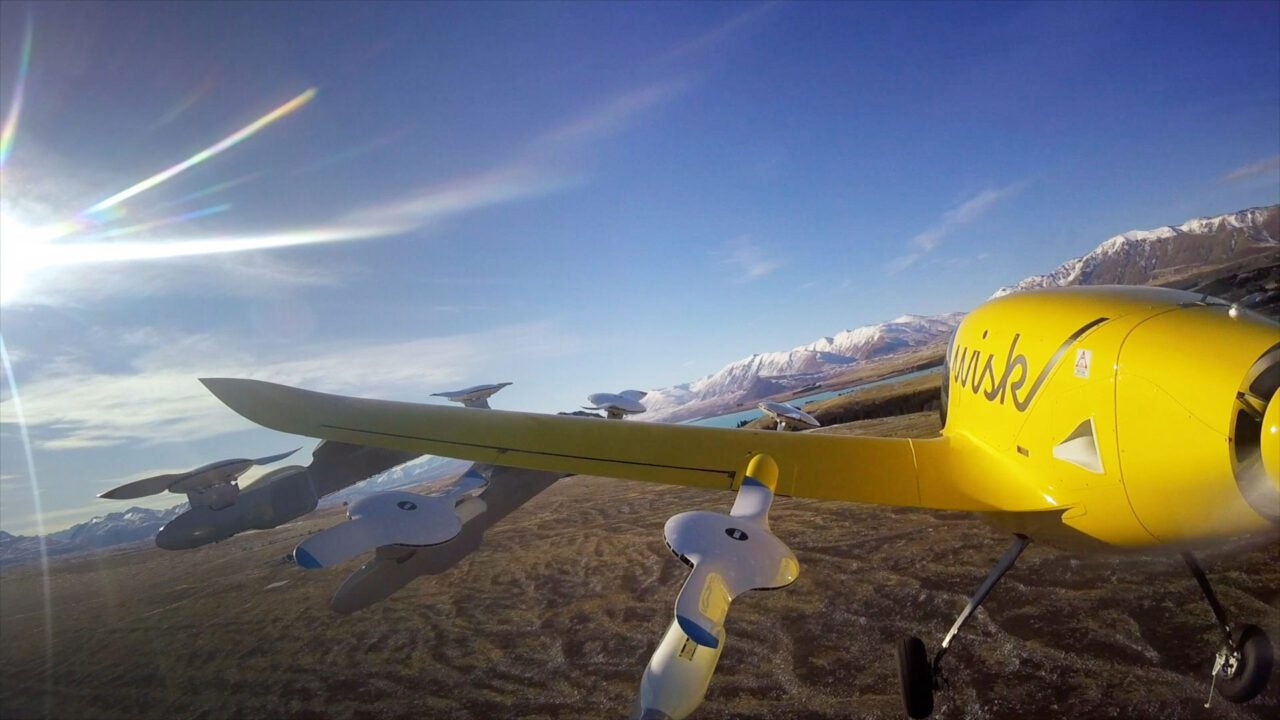
Boeing has invested $450 million in Wisk to support certification of their 6th-gen eVTOL and expand Wisk’s global reach. (Photo: Wisk Aero LLC)
Wisk, the eVTOL developer and advanced air mobility (AAM) company, has received $450 million in funding from The Boeing Company. In addition to supporting development of Wisk’s 6th-generation eVTOL aircraft, the investment from Boeing will contribute to Wisk’s preparations for launching scale manufacturing and go-to-market operations. Along with its previous investments, Wisk is now one of the most well-funded AAM companies worldwide.
During a Jan. 24 media briefing announcing the investment, Wisk’s President and CEO Gary Gysin spoke about the benefits of the new partnership with Boeing. “It’s not just capital—it’s also the resources, the engineering expertise. The funding will support scaling our manufacturing and go-to-market efforts.” Wisk plans to reveal the design of their eVTOL aircraft later this year. When asked about a timeline for certification, Gysin explained, “We’ll fly when it’s safe, when we’re ready, and when it’s certified.” Once it is certified, their 6th-generation vehicle is expected to perform close to 14 million annual flights within five years.

One of Wisk’s missions is for their eVTOL to provide affordable commuting options. (Photo: Wisk Aero LLC)
Cora, the eVTOL being developed by Wisk, is a two-passenger all-electric self-piloted aircraft. It has an experimental airworthiness certificate from the New Zealand Civil Aviation Authority (CAA) and the United States Federal Aviation Administration (FAA), according to their website. Gysin stated, “As we enter this next stage of our growth, this additional funding provides us with capital while allowing us to remain focused on our core business and our number one priority, safety.”
Wisk intends to remain the OEM and operator for the foreseeable future, and they are also engaged with companies and organizations to provide other capabilities. The company collaborated with Blade Urban Air Mobility to operate Wisk’s eVTOL aircraft on Blade’s network of dedicated terminals in the U.S. A partnership with NASA began in November 2020 to study safe integration of autonomous aircraft systems into urban air mobility (UAM) applications. In July 2021, NASA selected Wisk as an industry partner to support the advancement of AAM flight, airspace, and operations infrastructure. Another investor is Kittyhawk, who has supported Wisk’s development efforts for previous generations of eVTOL aircraft.
Brian Yutko, Vice President and Chief Engineer of Sustainability and Future Mobility at Boeing, shared that his team recognized the commercial potential of Wisk in 2019. “We liked that Wisk has achieved a number of aviation firsts and industry firsts,” he remarked during the briefing. The collaboration, he explained, includes development of technology and expansion of Wisk’s global reach in addition to supporting Wisk’s mission of achieving certification. Commenting on Wisk’s pioneering of all-electric autonomous capability, Boeing’s Chief Strategy Officer, Marc Allen, said, “Autonomy is the key to unlocking scale across all AAM applications, from passenger to cargo and beyond. That’s why straight-to-autonomy is a core first principle.”

Wisk has received support in developing its eVTOL and advancing AAM and UAM through partnerships with Blade Urban Air Mobility, Kittyhawk, and NASA. (Photo: Wisk Aero LLC)
Wisk’s vision for an AAM network includes opportunities to leverage existing infrastructure—such as small and mid-size airports—to repurpose as vertiports and charging stations. Not only does this allow Wisk to focus on certification for their aircraft, but it is also a more efficient and environmentally friendly strategy. “Much like the development of eVTOL aircraft, the development of eVTOL infrastructure—if done responsibly—will add value while seamlessly integrating into local communities,” a Wisk spokesperson previously told Avionics International.